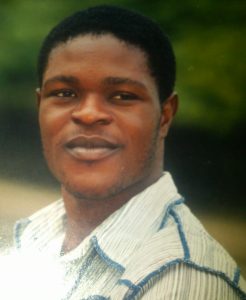Throughout Human history, there has never been a paucity of narratives which one way or the other validate the existence of divinity, some superhuman intelligence or cosmic force often fine-tuned, summarised or conceptualized as GOD. Such narratives, together with the tropes and motifs of search, seekership, pilgrimage, losses, upgrade and discoveries embedded within them, have formed the template for the more modern concept of religion and the postmodern concept of spirituality. Today, humans can lay claim to a relationship with the divine either via or without the agency of religion which fact has engendered the possibility of a myriad of expressions including but not limited to mysticism, exhortionism, witchcraft and sorcery, spiritism, and the list is endless.
For the Yorubas, spirituality finds its ouvre from one main source – Olodumare – which the English have roughly glossed as God the almighty or God the creator. This superintelligent force or being has been known to be invisible, invincible and unapproachable, hence His creation of numerous deities forming a pantheon of gods and goddesses which has often expanded to accommodate demigods and deified mortals who have transcended mortality through various acts of self-sacrifice, uncommon heroism and unparalleled ascetism. The pantheon offers the ample opportunity for humans to select a route to the largesse and a leeway from the wrath of Olodumare. Dedication to one or more such deity thus forms the foundation of religion in the Yoruba Spiritual system while, ultimately, belief in and reverence for Olodumare can be equated to the epitome of spirituality. Religions are thus often founded and designed to revolve around certain people who bring, write and interpret the laws of the religion on behalf of the deities while playing major roles in the channeling of communication between the deities and the devotees. These individuals are the priets, shamans and leaders of religious sects in the Yoruba spiritual system- forming alliances, cults and societies where peer-reviews and checks and balances are the order of things.
Yet, just as it is in the trajectory of world spirituality as I earlier hinted, the Yoruba spiritual system is often not bereft of few non-conformist figures who bypass the agency of religion to seek access to the God-head (Olodumare) via unorthodox means often frowned (or marveled) at as the case may be in religious circles. Such mystical personalities are pejoratively referred to as “adahunse” (he who goes it alone) in the Yoruba society. How else would you refer to someone who has broken the mould by refusing to associate and conform to the rituals of religion?
As Oyebola (1980) puts it, a bias often repeated in non-scholarly circles and even among non-initiates, adahunse is a nominal occult practitioner. He seldom offers daily (or a regular seasonal) sacrifice and libation like the babalawo, celebrates the anniversaries of anyone of the igba irunmole like the orisa devotees or attend iledi meetings like the Ogboni. The adahunse only accesses the abode of the divine, often on behalf of clients, on occasion and at will: usually through unconventional means which deepens the legend of such adahunse as a special one, an enigma or even sometimes earning them an outcast status. In comparison with the Christian religion which stipulates five offices of Apostle, Pastor, Prophet, Evangelist and Teacher each domiciled in a ministry but hardly conflated in one official, a church owner who establishes a ‘church’, operates the five ministries (or beyond) without the assistance of any and without recourse to the reviews and edicts of any regulating body in Christendom may be said to be the Christian version of Adahunse. Such personalities dazzle (or annoy) both their congregants and the conventional Christian community with their unusual ways containing in miracles, unconventional teachings and doctrines and in a number of cases, the leaders’ claim to be God.
Adahunse figures pervade Yoruba mythology and even seep through recent history. Many would recall the legends of Ige Adubi, Basorun Gaa, Efunsetan Aniwura and a few today who cannot be mentioned in respect to their right to privacy and to avoid possible litigation on grounds of breach of privacy and slander. Such individuals have been targets of ‘persecution’, assassination attempts and various forms of cancelation as conventional society often deem them dangerous elements with capacity to subvert leadership and societal order. In their defence however, adahunses have conversely often turned out as freedom fighters and liberators who open the people’s eyes to the deceit, half truths, exploitation and subjugation more often perpetrated in religious circles and in the larger society.
Johnson K. (2021) African Indigenous Healers and Counseling: A Case study of Babalawo. OSP Journal of Health Care and Medicine 2. HCM-2-129
Oyebola, D.D.O (1980) Traditional Medicine and its Practitioners Among the Yoruba of Nigeria: A Classification. Social Science & Medicine. Part A: Medical Psychology & Medical Sociology, 14(1) Pp 23-29,

